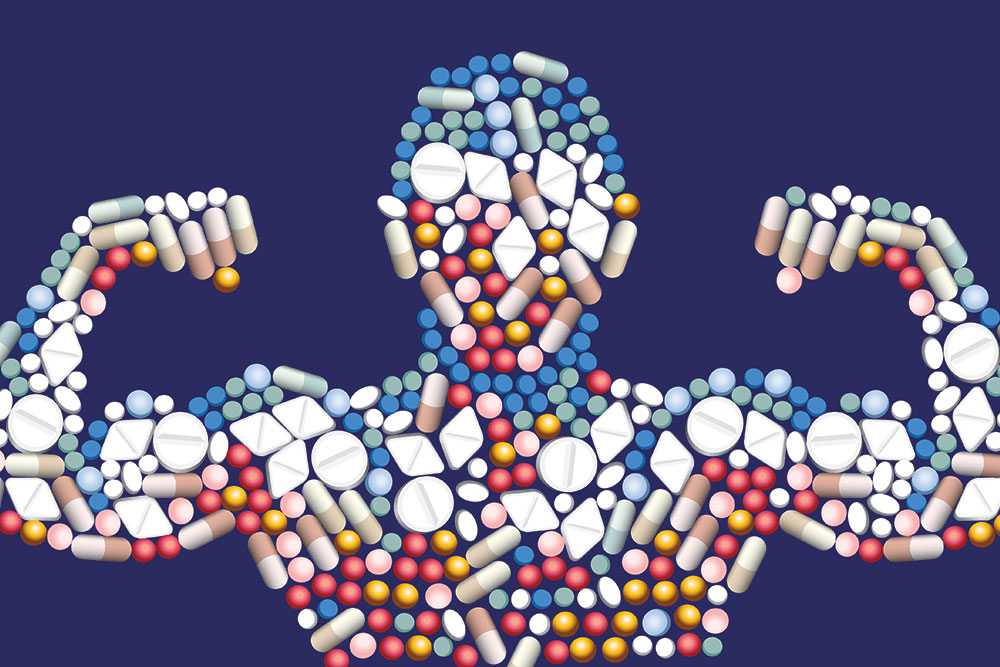More research is needed to address the critical health problems associated with the use of anabolic-androgenic steroids among American men, according to Harrison G. Pope, MD, MPH, writing in a new opinion paper published in the Journal of the American Medical Association (JAMA). Pope is the director of the Biological Psychiatry Laboratory at McLean Hospital, a professor of psychiatry at Harvard Medical School, and first author of the Viewpoint paper.
In the paper, Pope and his co-authors, Jag Khalsa, PhD, of the National Institute on Drug Abuse and Shalender Bhasin, MD, of Brigham and Women’s Hospital and Harvard Medical School, warn that there may be millions of American men—the majority of whom are not competitive athletes—who risk health consequences from the use of anabolic-androgenic steroids—the family of drugs that includes testosterone and its many synthetic derivatives.
“The widespread abuse of anabolic steroids by a growing fraction of American’s young men is a pressing public health problem that requires a concerted national effort,” said Bhasin. “Because men may hide their use and abuse of steroids, there is a lack of research outlining effective strategies to prevent or treat the long-term consequences of steroid use,” Pope added.
Over the last several decades, the image of the idealized male body in much of the western world has shifted toward a higher level of muscularity. Today’s young men are constantly exposed to muscular male images—on magazine covers, in ads, on television, and in the movies.
“Even children’s action toys, such as GI Joe, have become significantly more muscular than their predecessors of the 1960s,” Dr. Pope said.

This focus on muscularity in Western culture has led to a rising prevalence of “muscle dysmorphia,” a form of body image disorder characterized by an obsessive preoccupation with a muscular appearance.
Men with muscle dysmorphia may show elevated rates of mood and anxiety disorders, obsessive and compulsive behaviors, and impairment of social and occupational functioning. In their relentless pursuit of muscularity, these men are particularly at risk for long-term use of steroids.
New studies point to an increased risk of premature death, cardiovascular disorders, and psychiatric effects due to use of steroids.
In addition to further research, Pope and his colleagues cite the importance of raising awareness among the public, health care practitioners, and policymakers about the serious health consequences of steroids.
“We need to understand that modern media images that falsely equate muscularity with masculinity can be very damaging,” Pope said.
Media Requests
Journalist or member of the media? We are available 24/7 for media requests.



